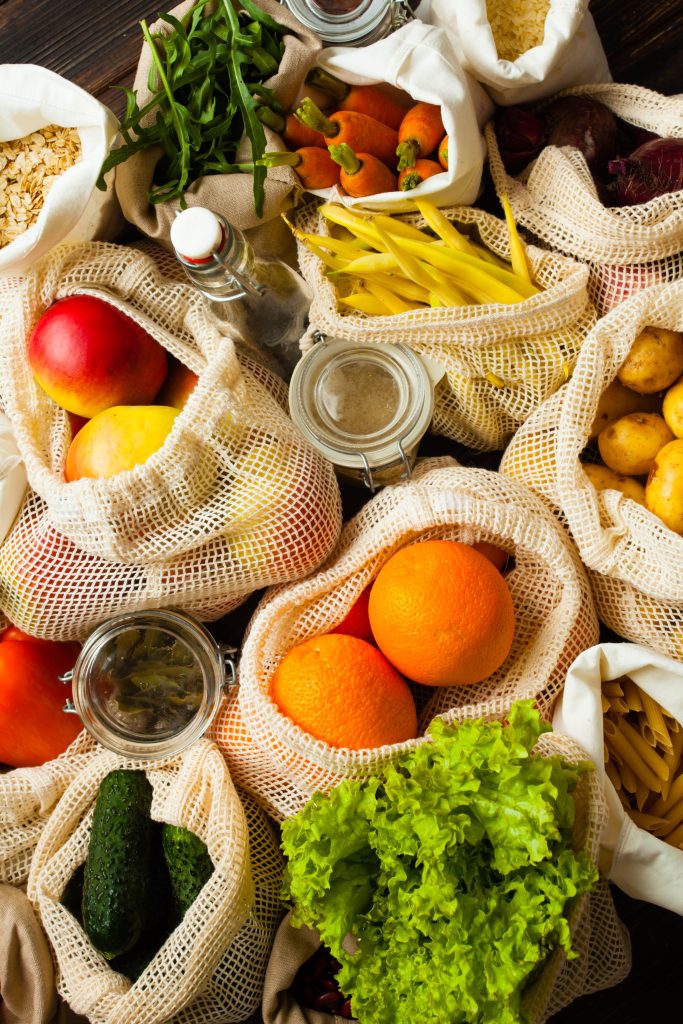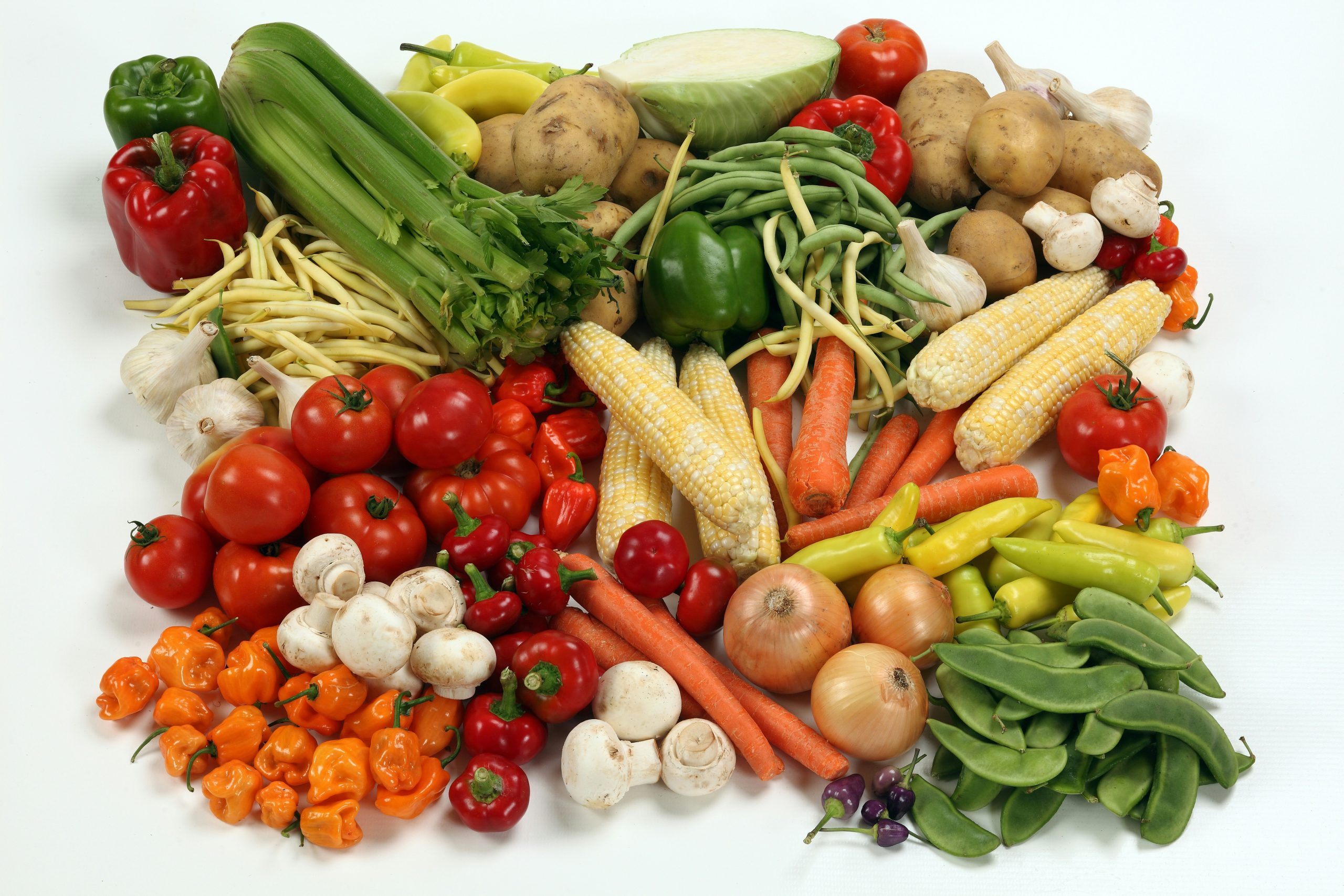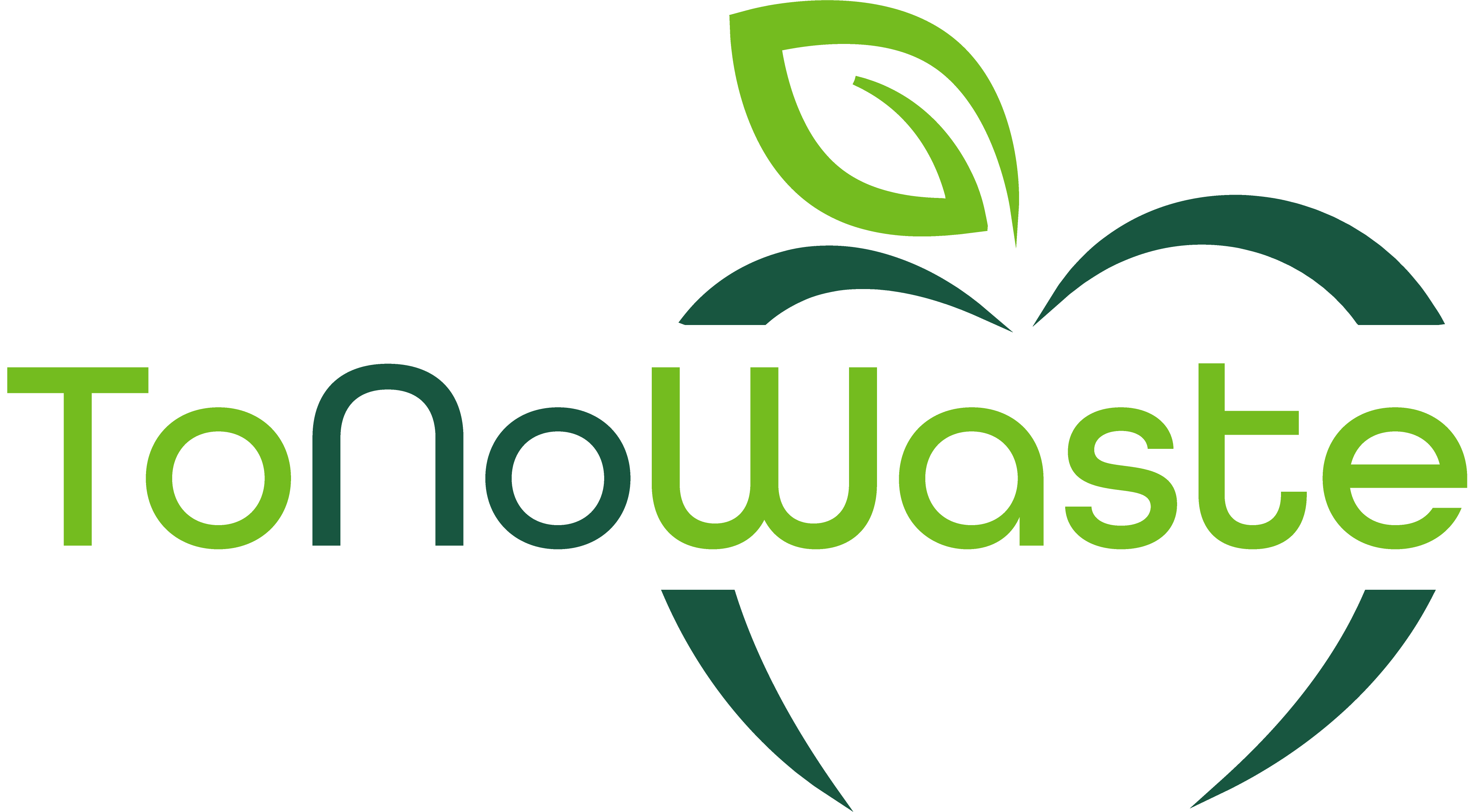Project

Objectives
The mission of ToNoWaste is to encourage actors in European food systems, using evidence-based tools and lessons learned, to make better decisions towards a more sustainable food production and consumption patterns.
ToNoWaste main objective is to provide farmers, supply chain companies as well as consumers and policymakers with more objective, integrated, and standardized information about the impacts and global co-benefits of their daily actions. ToNoWaste will inspire them to co-create a portfolio of positively assessed pathways to shift Europe towards a healthier, more resilient, inclusive, and sustainable food production and consumption.

Description
Food waste is a major problem: around 88 million tonnes of food is wasted annually along the EU supply chain, from primary production to consumption, with associated costs of €143 billion. The associated environmental impact is also huge: global food loss and waste is equivalent to 8-10% of total anthropogenic GHG emissions and costs around $1 trillion per year, and 30% of agricultural land is wasted. The situation may be even worse, as statistics indicate that 70% of all food lost or wasted by humans may be unrecorded because it originates from primary production or is used as animal feed. In parallel, the assessment of this problem remains unresolved, not only because it is extremely complex due to the lack of open access data and the absence of a standard methodology for comprehensive assessment in real food systems, but also because it affects the commitment of private entities that need to assess the cost-effectiveness and sustainability of food waste prevention and reduction (FWPR) solutions in order to act.
ToNoWaste is a 48-month project in which 21 institutions from 7 countries collaborate to overcome this challenge with a multi-stakeholder and interdisciplinary approach that considers not only agronomic, economic, environmental and business model challenges, but also other cross-cutting aspects such as psychology, law and social innovation to fight also against gender and social inequalities. ToNoWaste will inspire market actors to use science and evidence-based assessment tools and data to make better decisions towards more sustainable food production and consumption patterns. It starts from research on what makes the best decision regarding FWPR actions in the fresh food value chain. It is an open innovation ecosystem designed to leverage previous findings for the identification of social, technical/environmental, economic, political/legal, ethical and demographic drivers and to collaborate with ongoing R&D actions to propose comprehensive FWPR solutions.
21 institutions from 7 countries
…work together in the ToNoWaste project.

Specific Objectives
(O1) To Design an open innovation ecosystem that engages European researchers, municipalities, farmers, supply chains and citizens to share open access scientific knowledge about FWPR and its assessment. (WP1)
ToNoWaste seeks to create synergies with other ongoing actions related to FWPR at EU level keeping in touch with four H2020 sister projects to reuse data and collaborate in the actions assessment for avoiding duplication.
(O2) To unveil what better decision means in the fresh food value chain (FFVC), supporting the FWPR actions with the best impacts for the food system sustainability. ToNoWaste has selected FFVC because Milan urban food policy pact prioritized to make fresh food accessible for all due to its potential to solve dietary-related illnesses (e.g., diabetes, heart disease and cancer). Therefore, O2 will investigate how to make FWPR compatible with FFVC sustainable development with a cost-benefit approach (RO1).

(O3) To co-create a new science-based framework (SBF) for evidence-based decision making in food systems. (WP2)
O3 will look for synergies with H2020 sister projects, city councils and JRC to define logical steps for environmental/social/economic holistic impact FWPR assessment (RO2).
(O4) To transform the SBF into Quantitative Decision-Making Methods (QDMM) that supports researchers and professionals in decisions related to FWPR in the FFVC. (WP2)
O4 requires the SBF decomposition into specific workflows for the fresh products under study, considering its origin and business processes involved to establish the limits of acceptance/significance for each decision maker (R03).
(O5) To engage more and more FSC actors in the mindset and behavioural shift offering open access to:
i) consumer perception of the FWPR problem in fresh food value chain (FFVC) and potential solutions;
ii) learning contents, technical guidelines to implement the best practices available – including date marking and smart food packaging, as well as
iii) apps that automate the participation and monitoring process for facilitating decision making for supply chain actors. (WP4 and WP5)
The behavioural change will be prompt by results of social research (RO4) focused on understanding the consumers’ and producers’ perception of the problem and the solutions proposed by decision-makers. ToNoWaste will facilitate the co-creation of FWPR guidelines to identify hotspots of problems, plan actions, assess corrective solutions and document improvements. During Multi-actor workshops and other networking events, we will validate the tools (PR, DEM) by discussing the practical learnings (KH1) and quantitative data from actions assessment (KH2).

(O6) To take advantage of synergies among R&I projects and local/national FWPR actions to co-create specific accounting tools and an integrated platform for assessing the root causes behind FW along the value chain as well as fostering the most beneficial FWPR actions. (WP2 and WP3)
O6 will require the creation of accounting tools for professionals and its integration into an open platform for non-expert users (DEM) to facilitate the decision-making process to all the actors involved in the value chain. DEM will maximize the impact at EU level using open-source technologies as FIWARE. The previous/current FWPR actions in sister H2020 projects will be compared to detect the best practices that maximise the overall positive impacts.
(O7) To foster the organisational change with new coaching services and best practices in FSC. (WP6)
O7 is based on the creation of learning contents, training actions and a business coaching service oriented to support entrepreneurs. ToNoWaste will take advantage from current innovation HUBs related to urban FFVC where food companies (mainly SMEs) can co-create more sustainable business models.
(O8) To co-create new EU policies considering the diversity on regulatory ecology about FWPR. (WP6)
O8 will consider the new accounting and reporting methodology developed for ensuring a deeper integration of sustainability into the corporate governance and regulation of public supporting schemes for innovative businesses (KH4). The project will investigate how to transform the best FWPR actions in terms of KPIs into new standards and labels for fostering the organisational change. The project will use the Covenant of Majors and Milan Urban Food POLICY Pact for the open discussion of the white paper where other agencies like DG AGRI and JRC will be invited.

Work Packages
- WP1 Collaborative investigation of new decision making framework
- WP2 Development of new impact measurement system and ICT tools
- WP3 Technical development of decision support open access platform
- WP4 Social research to foster changes in consumer behaviour and business practices
- WP5 Validation of results and search for synergies in relevant environment
- WP6 Cocreation of new policies and guidelines for fostering the change
- WP7 Impact maximisation
- WP8 Project management
- WP9 Ethics requirements
Project information on Cordis
More information on the project can be found on the CORDIS-Page

